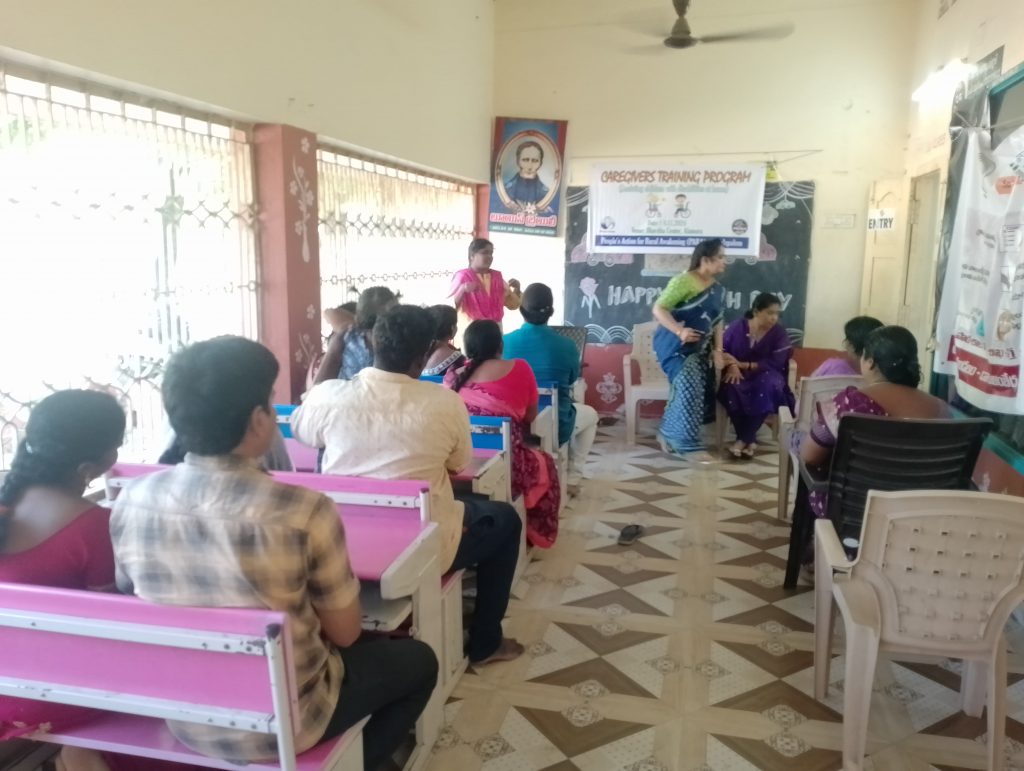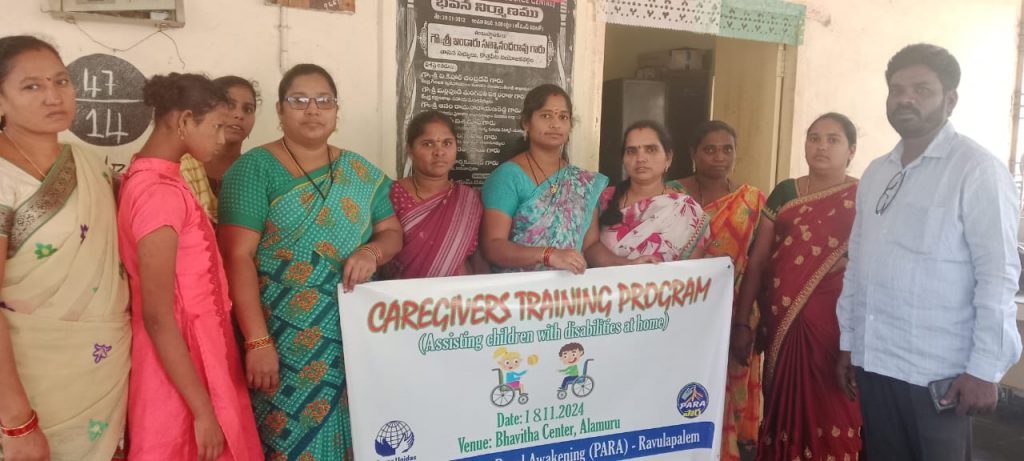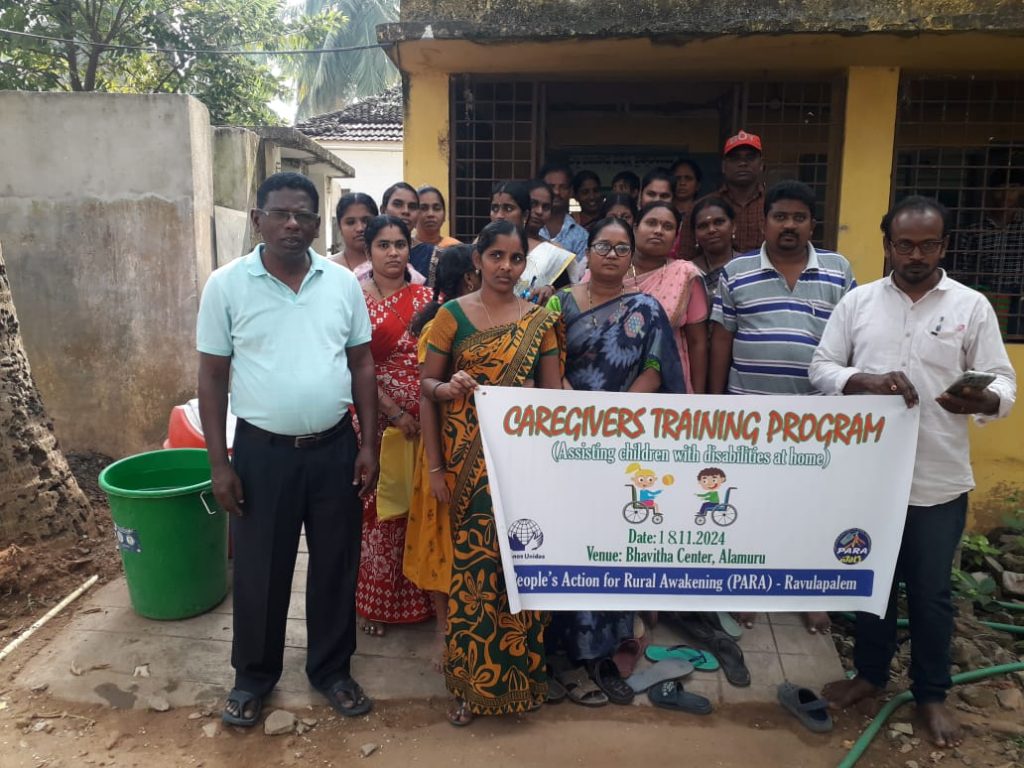Caregiving often involves parents or guardians who provide support to individuals unable to care for themselves due to age, illness, or disability. Caregivers play a crucial role in ensuring the well-being and quality of life of their care recipients. Their responsibilities include assisting with daily living activities such as bathing, dressing, and eating. Beyond physical care, they also offer emotional support and companionship. In many cases, caregivers manage medical care by administering medications and attend medical appointments.
PARA’s Intervention
PARA focused on supporting children and individuals with disabilities. One of its inclusive projects targeted the care of children who were bedridden due to severe disabilities. This initiative emphasized equipping caregivers with the knowledge and skills required to handle such children appropriately. In many rural areas, caregivers often lacked awareness of the dos and don’ts of caregiving, leading to inadequate care. PARA addressed this issue by identifying children with disabilities in four blocks and advocating for government-supported caregiver training.
Fifteen caregivers from each block were selected and trained at Bavitha Centres, government-run facilities that provided education and care for children with disabilities. The training sessions were organized in Alamuru, Atreypuaram, Ravulapalem, and Kothapeta, with schedules tailored to the availability of participants.
Caregiver Training Program
The training program covered various aspects of caregiving. Participants were educated on monitoring health conditions, managing medications, and administering specific treatments tailored to the needs of the children. Communication skills were another key focus, with caregivers learning to develop both verbal and non-verbal communication techniques. This included speaking clearly, listening actively, and interpreting body language to better understand the children’s needs.
Personal care tasks, such as bathing, dressing, and toileting, were also emphasized to ensure the children’s hygiene and dignity. Additionally, caregivers were taught how to cope with the physical and emotional demands of caregiving. Stress management techniques were introduced, helping them recognize signs of burnout, such as fatigue, irritability, and feelings of being overwhelmed. Self-care practices, including taking regular breaks, seeking social support, and engaging in stress-relief activities like mindfulness or physical exercise, were highlighted as essential tools for maintaining their own well-being. The importance of establishing a support network, whether through family, friends, or professional counseling, was also underscored.
Practical Training and Tools
Hands-on practice was a critical component of the training sessions. Resource persons provided various tools and demonstrated therapeutic techniques to help caregivers enhance the children’s sense of security and comfort. The training sessions aimed to empower caregivers with the confidence and competence needed to provide better care for children with disabilities.




